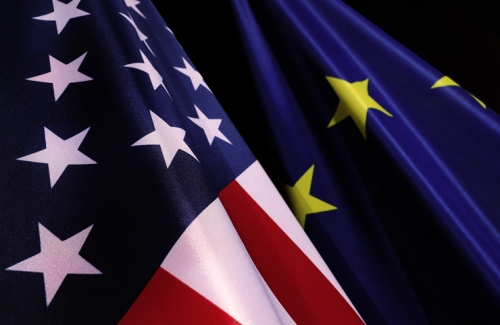The coronavirus epidemic and plummeting oil prices have yet again highlighted the fact that the West is in the midst of a systemic crisis, the effects of which can be seen in many different areas.
A great deal of political analysists in the West are raising the alarm to warn people about the chaos that is unfolding in Western governing institutions. The United States and Great Britain are often cited as examples of this deteriorating situation, where “the slavish loyalty of nonentities is valued over competency, experience and decency.” In an article on this topic published in the Arabnews, British journalist Baria Alamuddin writes that “[…] the world’s oldest democratic systems appear to have entered an age of senility, where established practices and safeguards are ignored or maliciously sabotaged at the behest of political and personal agendas.”
This is also being facilitated by the spread of lawlessness around the world, compounded by “[…] the neutering of international law and conflict resolution institutions.”
In the media, different forms of analysis are leading to the same conclusion, which is that Europe is losing its “international weight.” Yet, the EU is having to respond to an increasing number of challenges and faces a growing number of problems. Neither Germany nor France received an invitation to the summit Russia and Turkey held on Idlib. The Europeans are not able to cope with the threat of jihadists moving into Libya, the Sahel, the Sahara and West Africa, and there are new hotbeds of tension springing up in the Eastern Mediterranean.
At the same time, it is also worth noting what Al Jazeera’s senior political analyst Marwan Bishara had to say, who stressed that the outcome of the upcoming US presidential election will be determined by three factors: racism, religious fanaticism and inequality (“Trump is leading a coalition of angry right-wing, white Protestants which caters to corporate America”).
Former German Foreign Minister Joschka Fischer recently noted that Trump winning a second term would “pose an existential threat to the very idea of ‘the West’.” Fischer sharply criticizes the new EU leaders for essentially ignoring the fundamental changes that are taking place in the world, who he says are “spending their time squabbling over agriculture subsidies.” Yet, the key question is: “whether NATO could survive a second Trump term.”
It is worth noting a recent outlook report published by the Egyptian Center for Strategic Studies on how the world situation could develop, which highlighted that the actions being taken by the Turkish President and Ankara’s relations with Moscow “raise the question of whether this country will remain in the NATO military command.”
These conclusions echo the predictions of Cairo’s political analysts. For instance, Director of the Al-Ahram Center for Political and Strategic Studies Dr. Abdel Monem Said Aly stressed that “in many ways, the West is falling apart due to political and ethnic differences”: The EU is a prime example.
In 1970, Asia (including Japan) generated 19% of the world’s GDP, while the West had a 56% share. Now Asia’s share of global GDP is 43%, and the West contributes 37%.
The prevailing confusion and vacillation among American international scholars is symptomatic of this shift. The latest State Department report (March-April 2020) contains varying assessments of the current state of global affairs and of the role the United States should play. Thus, Stephen Wertheim argues that US should abandon its quest for world dominance. In an article titled “The Price of Primacy: Why America Shouldn’t Dominate the World”, Wertheim writes that Washington’s global ambitions are threatening American values. Thomas Wright’s article expresses a completely opposing view: “The Folly of Retrenchment: Why America Can’t Withdraw From the World.”
Graham Allison’s article “The New Spheres of Influence: Sharing the Globe With Other Great Powers” argues that the spheres of global influence need to be redefined.
The world is facing new threats and challenges, and it is clear that the American and European political analysts have yet to discover the formula for dealing with these problems. Moreover, the actions that many Western countries are taking only serve to exacerbate what is already an alarming situation.
In these circumstances, the whole world is looking to Russia and its stable foreign policy, which aims to strengthen adherence to the rules of international law, and it is gaining great respect and growing in popularity, especially given the importance President Vladimir Putin has placed on close international cooperation in order to seriously tackle the increasing number of global challenges.
Vladimir Mashin, Ph.D. in History and a political commentator, exclusively for the online magazine “New Eastern Outlook”.





 del.icio.us
del.icio.us
 Digg
Digg
Les commentaires sont fermés.